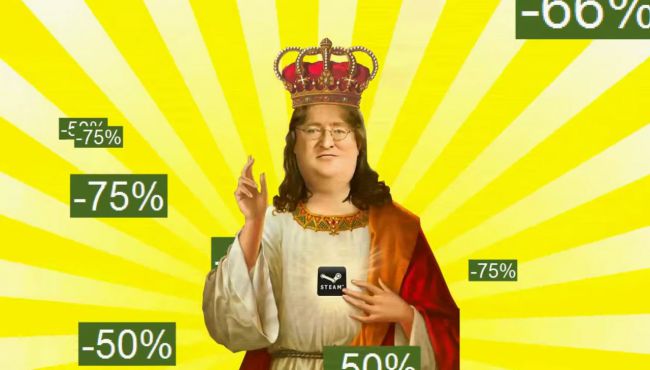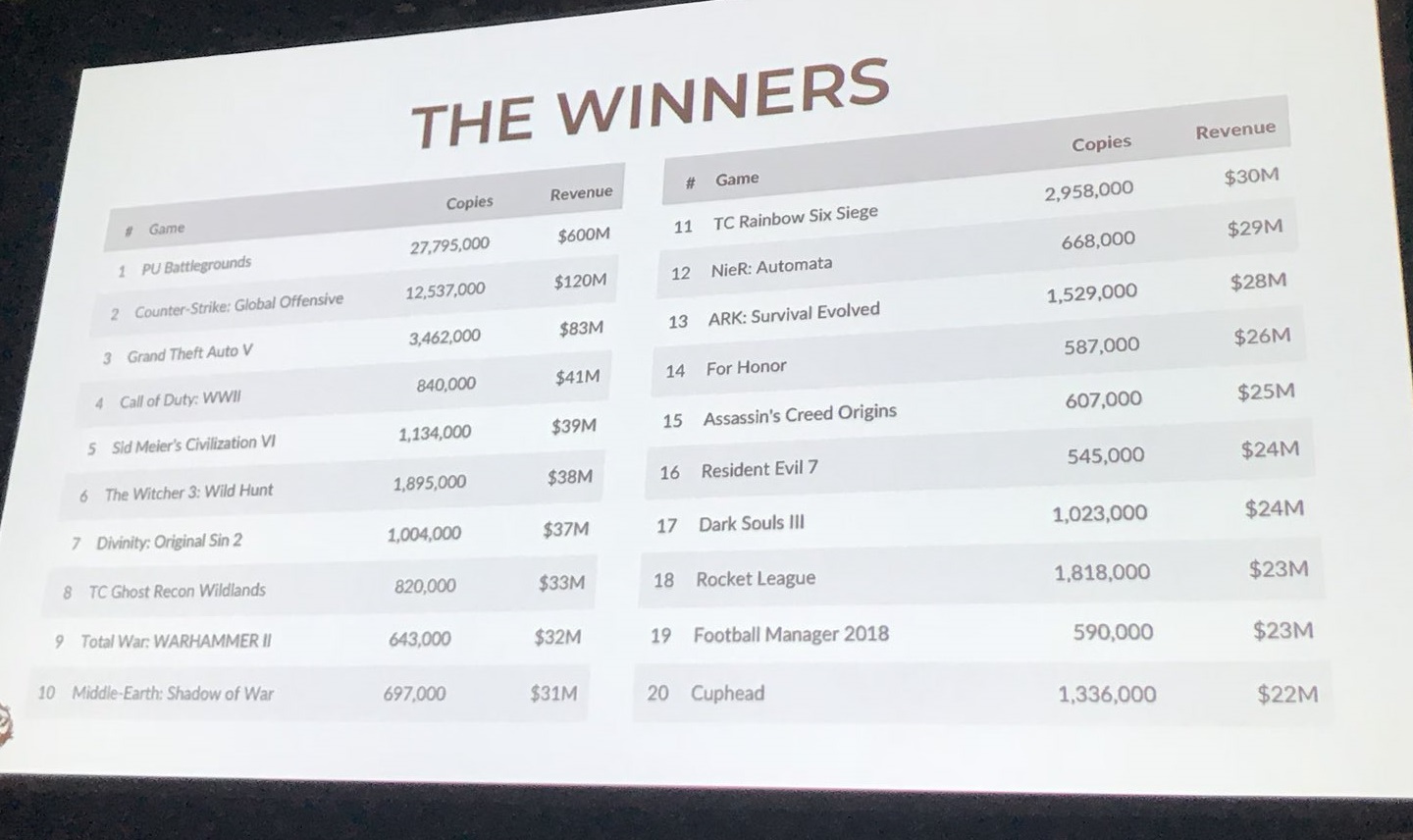The top 100 games on Steam made 50% of the total money in 2017, according to SteamSpy
Of the 7,696 games released in 2017, 0.5% earned half the total cash.

During a panel at GDC about the latest data scraped from Steam’s public user profiles by SteamSpy, owner and operator Sergey Galyonkin stated that around 50% of the total revenue earned on Steam was made by the top 100 games available on Valve’s popular digital marketplace.
Those 100 games made up 0.5% of all titles available on Steam in 2017, which was a landmark year in what is sure to be a continuing trend for the amount of games released on the service. 7,696 games were released on Steam in 2017, and, holy shit, that’s 39% of the over 21,000 games available on the service today.
“People compare it to the App Store and it’s not entirely fair because the App Store has way more games, but it is in the same realm, pretty much. It’s a number that no person, no gaming journalist could ever play in their life,” says Galyonkin.
There are caveats aplenty though (and more below): SteamSpy doesn’t take DLC, microtransactions, or refunds into account, which means this figure excludes some big, known revenue generators like Dota 2 and other free-to-play games or priced games with popular in-game marketplaces—CS:GO, for example. This data strictly speaks to units ‘sold,’ or what games are owned according to public profiles on Steam (99.9% of profiles are public, according to Galyonkin).

But of the top 20 of those top 100, there are a few nice surprises and underdog wins. PUBG takes the top spot—no surprise there—but Cuphead, a flippin’ indie platformer based on 1920s cartoons, takes up 20th place, raking in around $22 million bucks. Independent Belgian RPG Divinity: Original Sin 2 sits in seventh place with a hearty and well-deserved $37 million estimate, Rocket League is still (car) kicking in 18th with around $23 million, and a cult series goes mainstream with Nier: Automata in 12th place with something like $29 million.
A shame so many of the developers below that 100 game threshold aren’t doing as well, according to another GDC panel.
A big unanswered question here is how this figure compares to previous years on Steam. How much did 2016's Steam 'top 100' earn, and how does that compare to years past? Are earnings more concentrated or distributed than in previous years? I love the relative transparency of information we have on PC through APIs and third-parties—we're miles ahead of Nintendo, Xbox, and other platforms—but having an incomplete picture still makes it hard to draw larger conclusions.
Keep up to date with the most important stories and the best deals, as picked by the PC Gamer team.
Keep in mind that SteamSpy’s data is not completely accurate. It collects data once a day from public Steam profiles based on the Web API provided by Valve. Because a small percentage of profiles are private (again, 99.9% are public according to Galyonkin) and the Valve Web API servers don’t work as they should, be sure to approach all of SteamSpy’s data with a grain of salt.
The margins of error are explained in detail by Galyonkin on SteamSpy, but the basic idea is that the the more a game sells, the more reliable the data. The less a game sells, the less reliable.
James is stuck in an endless loop, playing the Dark Souls games on repeat until Elden Ring and Silksong set him free. He's a truffle pig for indie horror and weird FPS games too, seeking out games that actively hurt to play. Otherwise he's wandering Austin, identifying mushrooms and doodling grackles.


